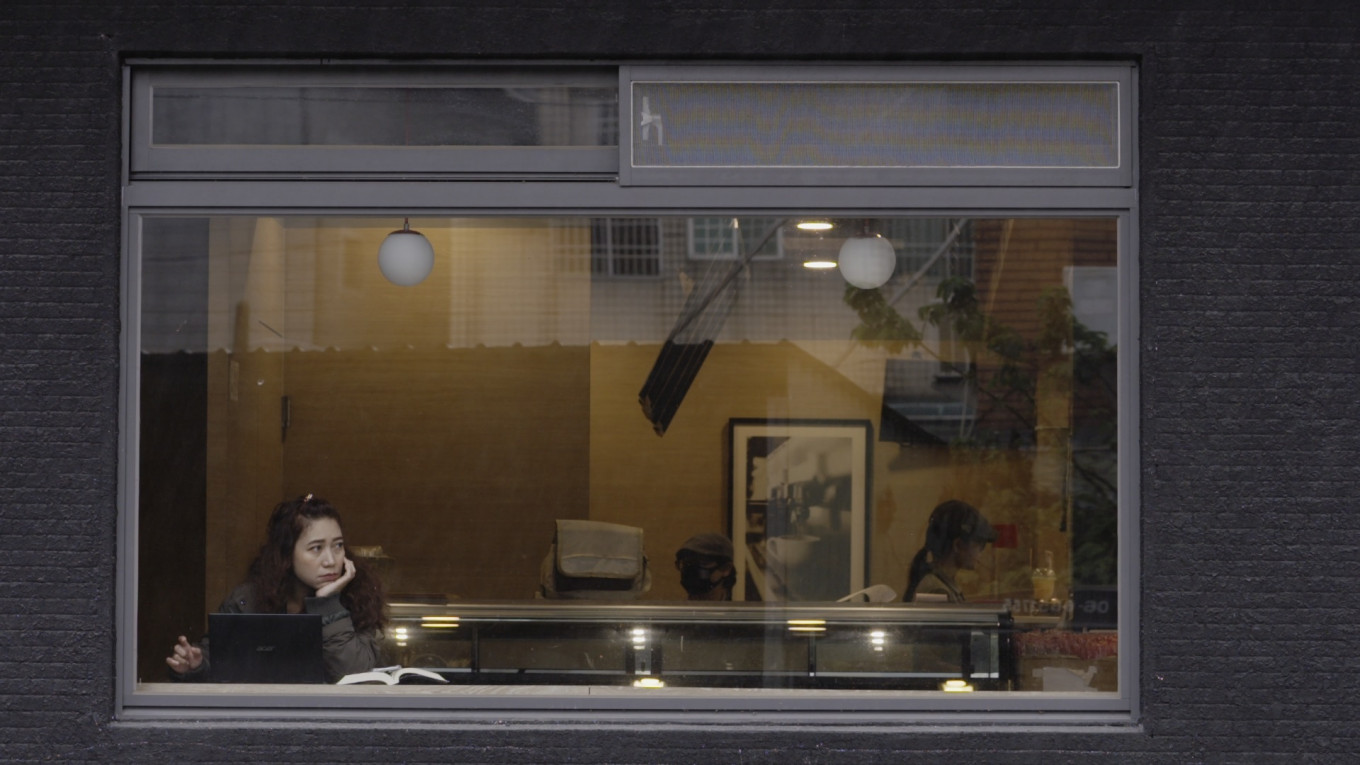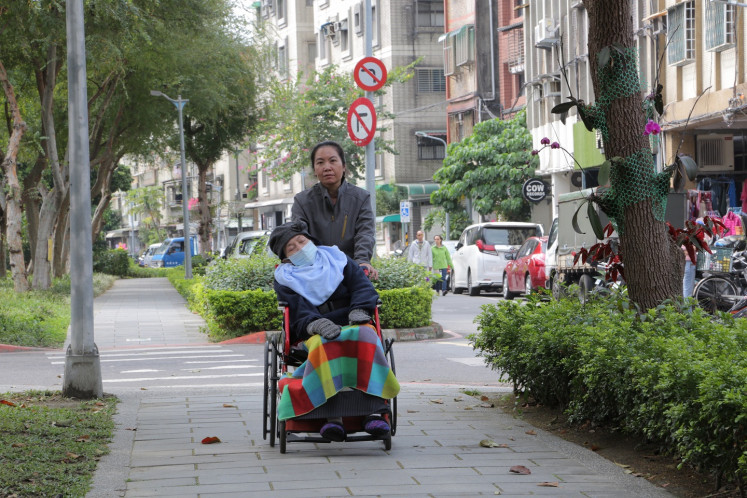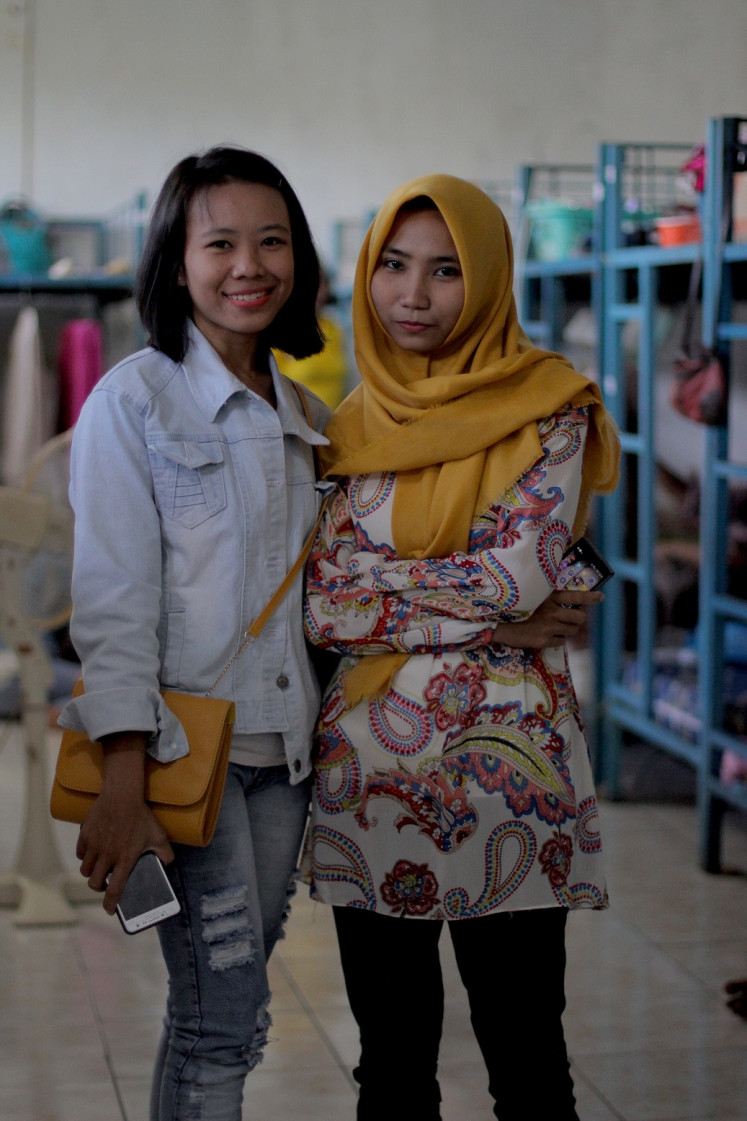Popular Reads
Top Results
Can't find what you're looking for?
View all search resultsPopular Reads
Top Results
Can't find what you're looking for?
View all search results‘Help is on the Way’ documents migrant workers' dreams, hopes in a foreign land
Documentary filmmaker Ismail Fahmi Lubis looks at the lives of four women pursuing their dreams – and carrying their families' expectations – in Help is on the Way.
Change text size
Gift Premium Articles
to Anyone
S
eeking work abroad to make one's fortune may be a dream that many can relate to, but for migrant workers clinging tightly to their passports, the fruits of this dream are not just theirs and theirs alone.
Domestic work, which includes live-in caregiving, is an occupation that provides a vital service in the daily lives of many, but the workers who fill these roles are often overlooked.
While working for a family in the nation's capital of Jakarta is a common goal, many young women are also drawn to work overseas for its many benefits, not least of which is a bigger paycheck.
These women migrant workers, who some have dubbed pahlawan devisa (foreign exchange heroes), contribute to the national economy by regularly remitting part of their salaries to their families back home. Yet, when we see them covered in the news, more often than not, it is in connection with negative coverage.
A newly available documentary on GoPlay, GoJek’s streaming service, reveals a snippet of the human stories behind the booming domestic worker industry.
Help is on the Way offers a behind-the-scenes look at four Indonesian women whose lives are intertwined with the island of Taiwan: "veteran" live-in caregivers Muji and Tari, and prospective migrant caregivers Sukma and Meri.
Leisurely stroll: Muji, who has adjusted well to her life in Taiwan, takes her employer's child out for a stroll. She is one of four women who feature in 'Help is on the Way', a documentary that takes a close and intimate look at their lives in Taiwan as domestic workers. (Two Islands Digital/-)The winner of the 2019 Best Feature Documentary at the 39th Indonesian Film Festival was born from director Ismail Fahmi Lubis’ previous documentary, Tarling is Darling, which explores the dangdut music scene on the northern coast of Java, with a focus on Indramayu, West Java.
The documentary has also been selected for the Asian Visions Competition at the 2020 Taiwan International Documentary Festival (TIDF).
In a phone interview with The Jakarta Post, Ismail said that Tarling is Darling was received warmly by the audience at the 2018 TIDF, where it won the Asian Visions Special Jury Mention Award.
Ismail recounted that the festival staff was impress that, immediately after arriving in the country, he went to meet Indonesian migrant workers at Taipei Main Station and to hand out festival brochures. Some of these workers even came to the Tarling screening.
“I posted the moments to my social media [account] and tagged the festival. They referred to this anecdote when I was speaking at one of the [festival's] seminars, and I suggested that we should make a film about the ties between the two countries, as there are quite a few Indonesians working in Taiwan,” said the Jakarta Arts Institute graduate.
The female subjects of Help is on the Way view Taiwan as a promised land, where opportunities are plentiful and wages are high.
“My interest was piqued because Taiwan has become a favorite destination among migrant [workers]. The people of Indramayu say that people have made it in life if they have worked in Taiwan – it’s becoming a lifestyle of sorts,” he said.
Early in the documentary, we see Sukma and Meri in their caregiver training program, which includes classes on assisting the elderly in exercising and Mandarin.
Still, it’s not all work and no play. Viewers also glimpse the experiences of Indonesian migrant workers in Taiwan in several scenes, like one that captures a gathering of Indonesian caregivers, complete with traditional Indonesian snacks.
However, the most notable aspect of the documentary is perhaps the deeply personal views it offers into the four women's lives.
For example, Tari spends her evenings completing her university assignments, trying to earn her degree as a form of apology to her late father.
The segment on Muji and her well-adjusted life in Taiwan is interspersed with her narrating her life story. She reveals at one point that her husband divorced her because she was “a poor man’s daughter”.
Ismail said that the most striking moment during filming came when he recognized a change in his own mindset. Before filming, he used to question why the migrants wished to work overseas instead of in Indonesia.
“But if I were them, I would think the same way. Some of them live in houses that are not fit for living in, and their goal of working in Taiwan is to fulfill their dreams. Their logic is, ‘Why stay at home and cook or clean when I can do the same in Taiwan and get paid for it?’" he said.
“Another thing [...] is that they are interested in living more comfortable lives – a softer bed, cleaner air – not like in their villages. Many choose to work [overseas] just to escape their ennui, although their main goal is to improve their financial standing,” Ismail added.
As for the central message of the film, Ismail recalled that at times he bristled at the women's home environments.
“Even though the kid hasn’t even set off yet, [her family] already have dreams of buying things like a goat or a motorcycle. And that’s just the parents, [not] counting the other relatives’ wish lists," he said.
“[The worker] hasn't even boarded the plane, but she is already carrying huge burdens that have been placed on her, like her mother borrowing money and promising to pay it back when her daughter sends home money. What happens is that the [worker] has no other choice than to forge ahead.”
The films touch on these culturally sensitive issues. For example, Meri’s parents have already set her up to marry a man and made their own plans on what they'll buy with the money she sends home.
This is juxtaposed with heart-to-heart scenes, like the one in which Meri’s teacher advises her against giving all the money she earns to her parents. Another shows Muji’s employer telling her not to send money to her cheating husband.
The message Ismail wants to get across through Help is on the Way, he tells his would-be viewers, is that domestic work is a noble profession and that it should not be looked down on as a “lowly” job.
“What makes [Indonesian migrant workers] different from, say, the Chinese who come to Indonesia to work as factory technicians? The world is much more open now, why should we sneer at these migrants?” he said, challenging his audience with an open-ended question that they must find the answer to.













